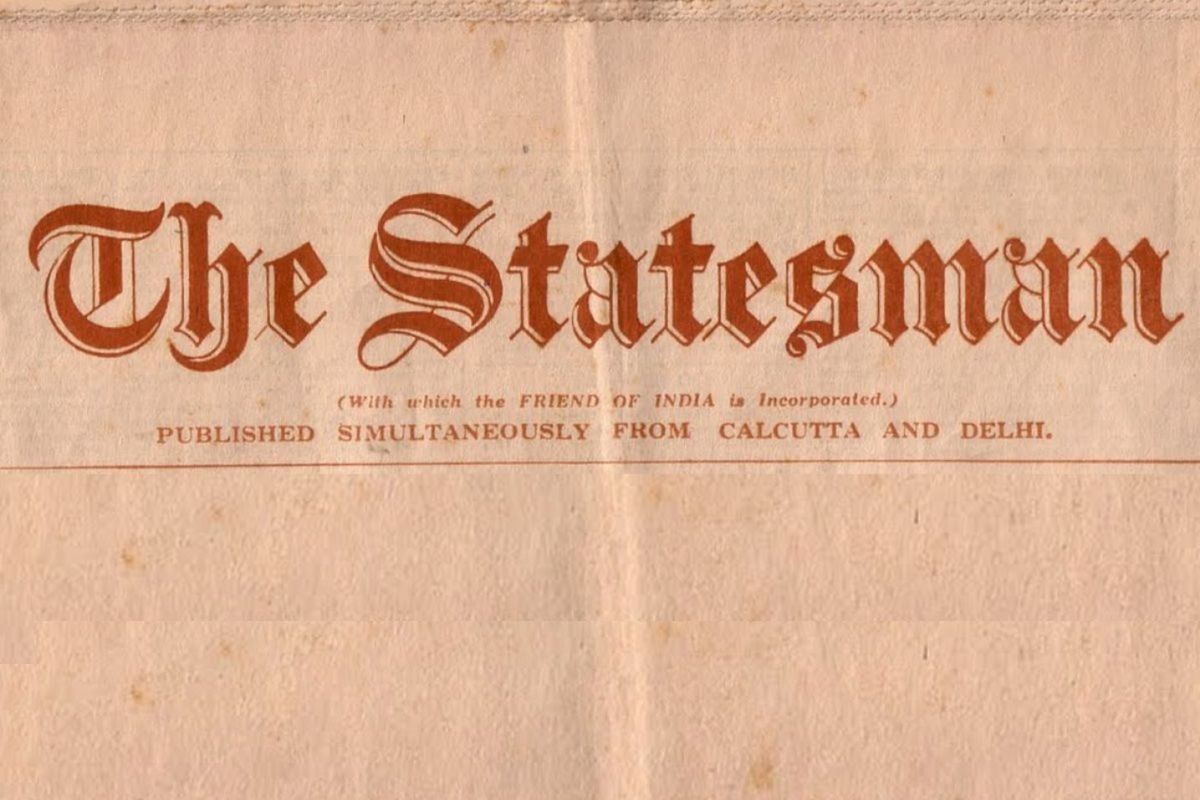Leading women personalities on what it takes to be a woman!
On International Women's Day, The Statesman talked to esteemed women personalities from various fields on what it takes to be a woman in our country and what empowers them.
On this day a century ago, these were some of the news items The Statesman readers got to read about India and the world.

OCCASIONAL NOTE
The International Office of Public Health was established by international agreement in pre-war days, towards the end of the year 1907. Thirty-three countries now take a share in the work, and India is among them, the only other Asiatic country that is represented being French IndoChina. Germany is not included, nor any one of the States into which the AustroHungarian empire has been dissected. As the League of Nations is required by one of its articles to interest itself in questions of public health, the International Office has recently convened a meeting to consider the question of its future relations with the League, and it has resolved to place itself unreservedly at the disposal of the Governments that form the League. The epidemic of typhus fever which is reported from Poland is engaging the attention of the Office at present and it is felt that there is a serious danger of the spread of the epidemic this winter to the western parts of Europe. It has been reported, as the result of a mission sent to Poland by the League of Red Cross Societies, that the military and civil organisations in Poland – even Poland has a Ministry of Health – are enlightened and efficient, but are hampered by shortage of food and of hospital and housing equipment. The situation is aggravated by the constant movement of refugees and prisoners along the eastern frontier of Poland.
Advertisement
TAXI-CAB DACOITY AT BUDGE BUDGE
Advertisement
An armed taxi-cab dacoity is reported to have been committed at Budge Budge in the house of Hari Charan Sarkar on Monday. From the different versions of the affair, it appears that four men got down from a taxi and they were joined by three others who appeared at the main entrance of the house, and knocked at the door. A servant who opened it was immediately covered with a pistol. Three of the dacoits guarded the door while four of them covered their faces with masks forced the door of a room in which the owner of the house was sleeping with his wife and children. The ruffians assaulted Sarkar and his wife, and forced them, on pain of instant death, to deliver the key of the iron safe, removed currency notes, cash and jewellery. The dacoits also stripped the owner’s wife of her jewellery. The Alipore Detective Police have the enquiry in hand.
THE STRIKE ON THE NORTH-WESTERN RAILWAY
Yesterday the North-Western Railway staff at Saharanpur held a mass meeting at which it was decided to place certain demands before the authorities. These demands were refused. The authorities offered certain concessions which were rejected by the employees and the position remains as before. Conditions on the North-Western Railway as a whole are normal. Train services have kept better time, being in most instances only a little late. Speaking with regard to the recent advance in salaries a railway official reiterated that the men had been dealt with fairly. “There may be”, he said, “though we are not aware of the fact, some isolated instances where the increase has not been what it should have been, but if these are brought to our notice they will receive our immediate sympathetic consideration.”
MADRAS MERCHANT ARRESTED
MADRAS, JAN 13
Before Mr. J.C. Adam, Chief Presidency Magistrate, Madras, Mr. Jainalbuddin of Secunderabad, was produced, on a warrant of arrest from the police of Secunderabad. It is alleged that the accused represented himself as a railway contractor of H.E.H. the Nizam’s State Railways and had forged railway debentures to the extent of Rs 2,00,000. It is further alleged that the accused pledged with Messrs. Rai Bahadur Bansilal Abirchand, bankers of Secunderabad, debentures worth Rs 36,000 for Rs 30,000 and obtained that amount. With this amount the accused, it is stated, came to Madras and opened a business in the name of Robinson and Co. Messrs. Bansilal sent the debentures to the State Railway, but they were returned to them as being forged. The police arrested the accused.
THE ANGLO-INDIAN ASSOCIATION
BOMBAY, JAN 13
Colonel Gidney, President of the AngloIndian Association, Bombay writing to the Times of India, says the Anglo-Indian community should enter all the fields of competition as equals and not either as superiors or inferiors. The sooner AngloIndians recognised that they were statutory natives of India, of the land and for the land, and dismantled themselves of that pseudo-veneer of superiority and studied aloofness so characteristic of them, the sooner they would be recognised and appreciated by the Government and the people of India.
Advertisement